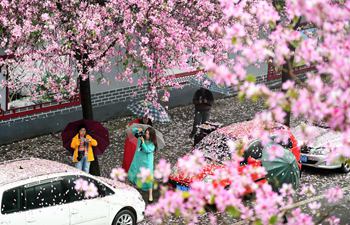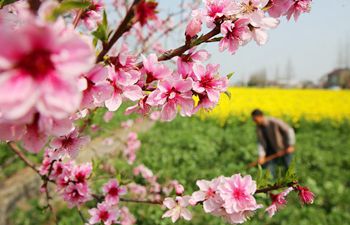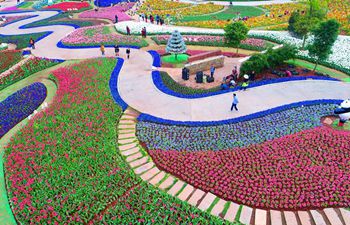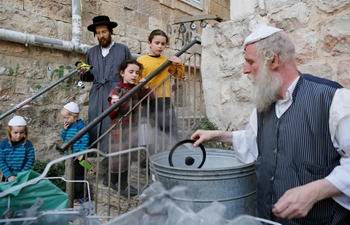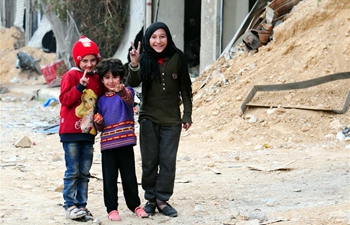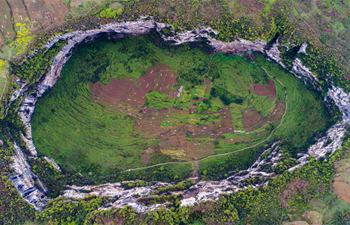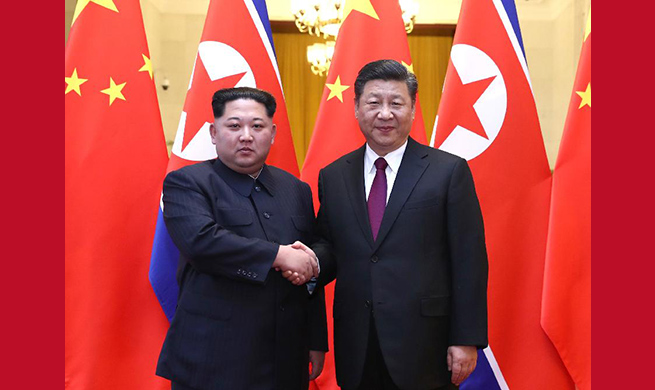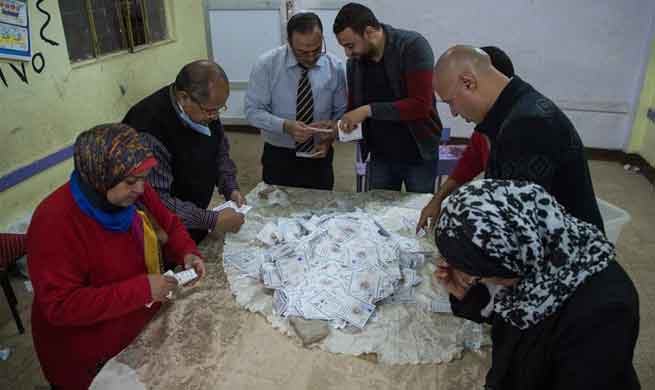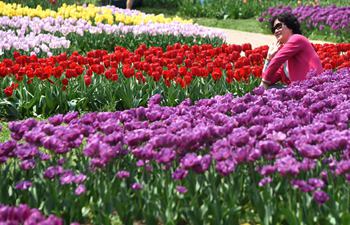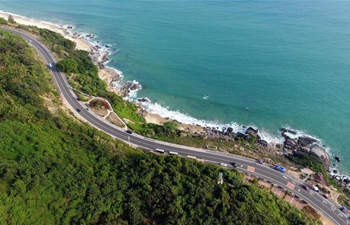CHENGDU, March 29 (Xinhua) -- One of the most relaxing ways to spend an afternoon in Sichuan Province's Aba County is playing Tibetan chess with friends in a tea house.
The county, located on the Qinghai-Tibet Plateau with a population of 80,000, is home to one of the oldest Tibetan chess associations in China.
In the afternoon, people begin to gather in Aba's tea houses. They order a pot of jasmine tea and a bowl of dumplings or beef noodles and sit down to play Tibetan chess with friends until darkness arrives.
Descriptions of Tibetan chess have been found in books published over 1,000 years ago. There are two types of Tibetan chess: "Mimang" and "Jiu."
Mimang is similar to Weiqi, also called Go, but was mostly played in ancient times. Not many people know how to play it today. Jiu is closer to international checkers and is still widely popular in Tibetan-inhabited areas of Sichuan and Qinghai.
Although a Jiu board may look like a Go board, and the two games share the same black and white pieces, the rules are very different. Tibetan chess can be played by two, four or six people at a time.
Generally, a game takes three or four hours, but some can last a day.
"Few people play Mahjong and poker in Aba. In tea houses here, Tibetan chess is our game," said Darjee, secretary-general of Aba County Tibetan Chess Association.
From 2004 to 2017, Aba County organized 16 Tibetan chess competitions, including seven national ones.
October to April, when there is no farm work to do, is the high season for Tibetan chess, he said.
Darjee has been playing Tibetan chess for 35 years, since the age of six. His passion for the game led him to join the association, and he is committed to protecting this part of traditional Tibetan culture.
He took the lead in compiling a book on the theory behind Jiu. He hopes the book will be published in both Tibetan and Chinese.
The association is also communicating with local education authorities to introduce Tibetan chess courses to primary and middle school students.
The local government has also paid a lot of attention to preserving this traditional board game.
"Since 2012, we have provided annual funding to support the local Tibetan Chess Association's activities. Last year, the government granted 170,000 yuan (about 27,000 U.S. dollars) to the association," said Yang Fang, director of the local cultural and broadcasting bureau.




